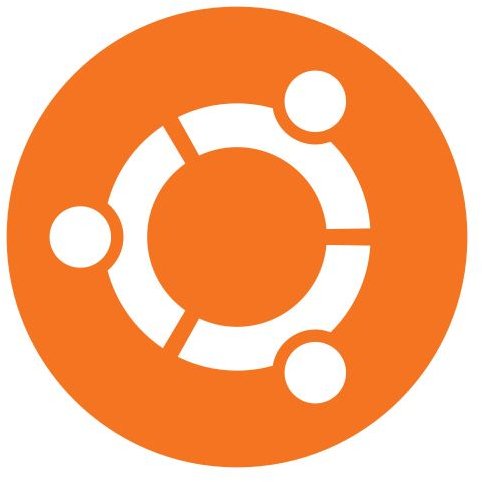Ubuntu Goes Mobile - What Does it Mean for Android ?
There is a sort of hierarchy in popular computing which is echoed in the mobile phone industry. We have Windows computers and Windows Phones, Apple Macs and the iPhone running iOS, and Linux, which has its mobile phone incarnation as Android. While this might be a generalised summary, it is largely how the mobile phone market lines up, with a little bit of help from the BlackBerry platform which is used only on phones and tablets from RIM, and Symbian, a platform whose end is imminent.
However, the interesting thing about all of these platforms is that they are proprietary, except for Linux, which is purely open source. This is why the Linux kernel was available to be used by the Android developers.
Flexible enough to be used on any number of hardware systems from routers and alarm systems to computer, laptops and even medical instrumentation, Linux is set to make its second foray into the mobile phone market thanks to the Canonical team, the developers behind the Ubuntu flavor of Linux.
But what does this mean for Android?
The Current Strength of Android
A quick look at the sales figures of mobile phones shows that Android is riding high, surpassing iPhone in some territories and basically becoming the platform of choice for anyone who doesn’t want an iPhone or simply wants something better than an old-fashioned candy bar feature phone.
With over 350,000 apps available for a wide selection of purposes such as video streaming, converting measurements, and receiving emails, Android is also becoming a popular mobile gaming platform, thanks in part to the use of Nvidia processors in phones and tablets and the support of Sony. The electronics giant has made various PSP games compatible with high-end Android devices, thus enhancing the platform’s popularity.
The only real area in which Android is lacking is in the tablet market, where the iPad still reigns supreme. Despite the critical success of the Honeycomb version of Android, it seems likely that there is still some work to do in that area.
What of Ubuntu’s Own Strengths?
Overall, a newcomer to the mobile phone market has a lot of work to do. So what are the strengths of Ubuntu?
Without a doubt, Ubuntu is the most popular Linux distro for home use, something that developer Canonical has worked hard to build upon with recent releases aimed at netbooks and touch screen devices. As popular as these versions are, however, the “unique selling point” of Ubuntu (although of course, the operating system is free to download and use) is that it isn’t Windows.
For anyone looking for an alternative to the ubiquitous Microsoft operating system, Ubuntu is the most obvious choice if you can’t afford an Apple computer. Over the years the Ubuntu desktop user interface has been polished to such an extent that it works as an effective bridge between Mac OS X and Windows. Throw in support for virtualization and the Wine Windows emulation system and it becomes clear that Ubuntu is more than suited as a desktop operating system.
A New Dawn or a False Hope?
So why is Canonical angling for the mobile phone market?
Well, the obvious answer is money. As things stand, the supply of music and extended cloud storage are the only revenue streams that the distribution receives – hardly surprising for an open source project.
Of course, Android is derived from the same Kernel as Ubuntu, and Canonical cannot have been alone at looking enviously at what Google has achieved with its mobile OS.
The Unity interface that debuted in 2010 and found its way into Ubuntu in 11.04 is geared for touch-screen devices, and it is this user interface that will be used according to Canonical’s roadmap, which targets mobile phones and tablet devices among other devices that they intend to provide the OS for by 2014.
“By 14.04 LTS Ubuntu will power tablets, phones, TVs and smart screens from the car to the office kitchen, and it will connect those devices cleanly and seamlessly to the desktop, the server and the cloud," wrote Canonical’s Mark Shuttleworth, and you can hardly deny his ambition for Ubuntu.
But without partnerships with the top hardware manufacturers, an Ubuntu phone or tablet (Upad or Uphone?) isn’t going to be a success, and certainly doesn’t look like an obvious competitor for Google Android. While quoting statistics such as “70% of people in Egypt access the Internet solely via the phone… in the US that figure is a startling 25%,” is all very well, it misses the point that these figures represent people who are already accessing the Internet. These are users who are already “sewn up” by the market, and are therefore out of Canonical’s reach.
Short of Google ditching Android in the face of endless patent claims and looking to Unity as an alternative, Ubuntu is likely to remain the last best choice, just as it is for desktop users. Perhaps it can make headway in the tablet market where Android is currently struggling, but the mobile phone market is a different proposition.
After all, no one would bet against Google in an Ubuntu vs Android fight!
References
- Ubuntu logo credit: Wikimedia Commons/Sertion
- Shuttleworth, Mark. “Ubuntu on phones, tablets, TV’s and smart screens everywhere,” http://www.markshuttleworth.com/archives/820
- Distro Watch, http://distrowatch.com/
